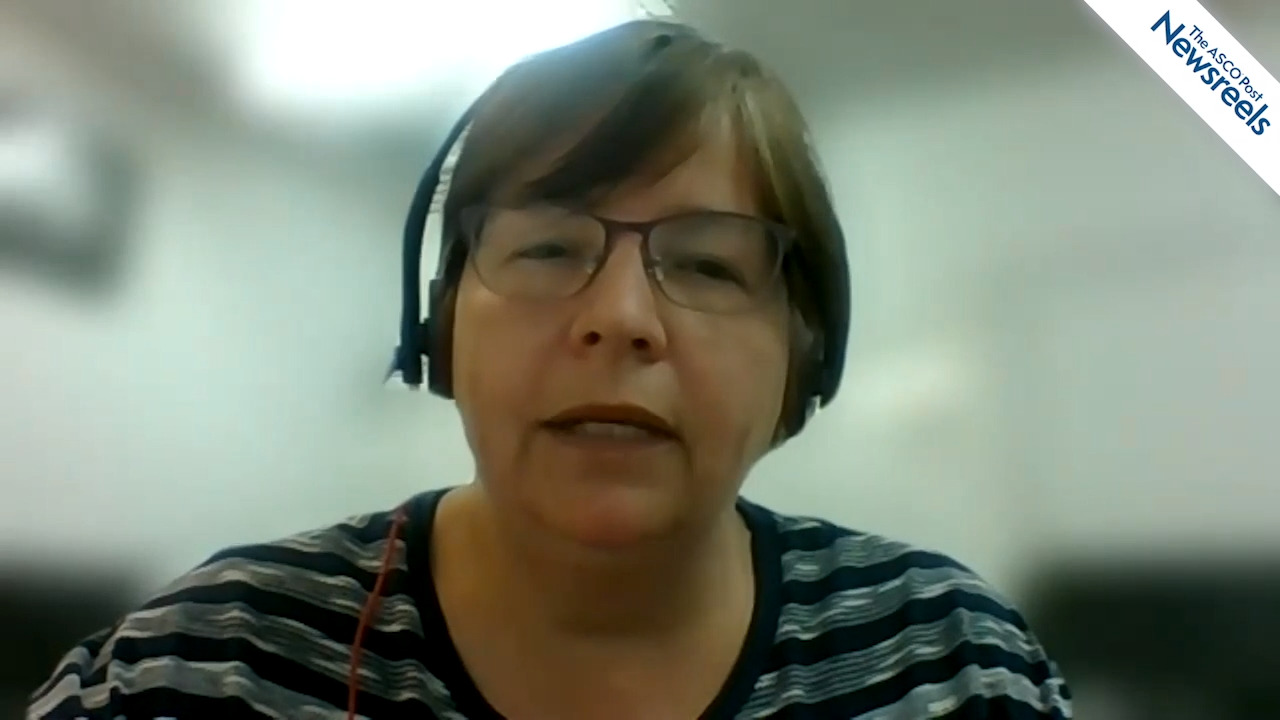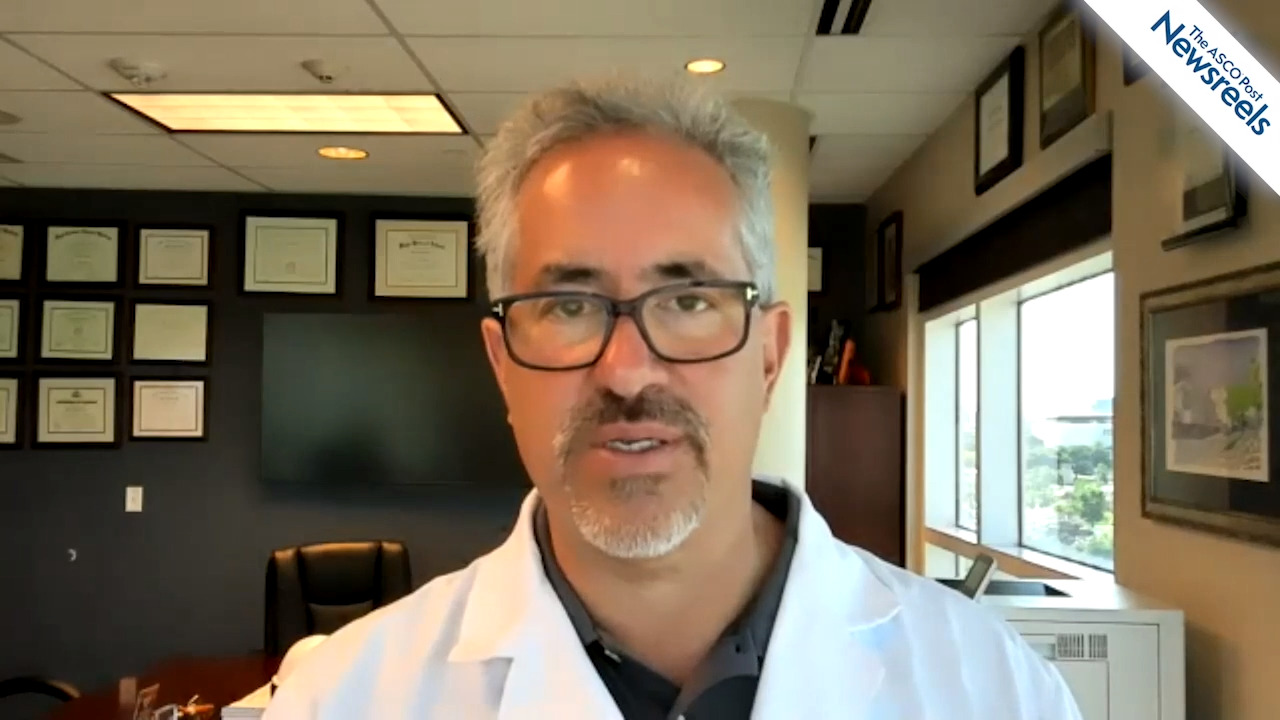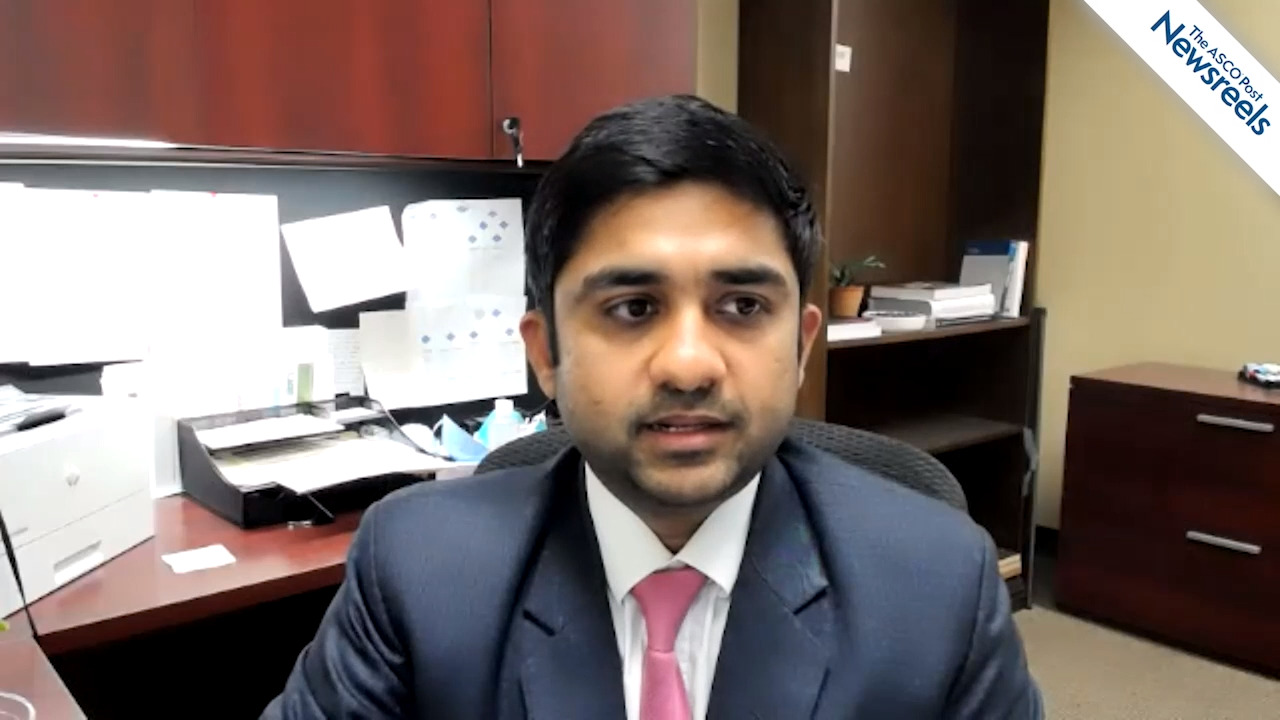Cristina Gasparetto, MD, on Multiple Myeloma: Selinexor, Carfilzomib, and Dexamethasone in Carfilzomib-Nonrefractory Patients
EHA 2021 Virtual Congress
Cristina Gasparetto, MD, of Duke University, discusses findings from a study that suggests patients with heavily pretreated multiple myeloma benefit from weekly selinexor, carfilzomib, and dexamethasone, which was reported to be active, with an overall response rate of 78% and an overall progression-free survival of 23 months (Abstract S188).
The ASCO Post Staff
Martin H. Dreyling, MD, PhD, of University Hospital Munich Grosshadern Klinikum, discusses phase II results from the ELARA trial, which suggests tisagenlecleucel may be a promising immunotherapy for adults with relapsed or refractory follicular lymphoma (Abstract S210).
The ASCO Post Staff
Claire Harrison, MD, of Guy’s and St. Thomas’ Hospital, discusses survival results from the JAKARTA and JAKARTA2 trials, which showed that fedratinib, an oral JAK2 inhibitor, significantly improved progression-free survival vs placebo as a first-line treatment for patients with myelofibrosis (Abstract S203).
The ASCO Post Staff
Ruben A. Mesa, MD, of UT Health San Antonio Cancer Center, discusses new findings on momelotinib, a potent JAK1, JAK2, and ACVR1 inhibitor with clinical activity against hallmark features of myelofibrosis such as anemia and splenomegaly. Results showed that transfusion independence was associated with improved overall survival in patients who had received momelotinib (Abstract S202).
The ASCO Post Staff
Martin Hutchings, MD, PhD, of Copenhagen University Hospital, discusses a 5-year update of the phase III ECHELON-1 study, which suggested brentuximab vedotin plus doxorubicin, vinblastine, and dacarbazine benefits patients with previously untreated stage III or IV classical Hodgkin lymphoma (Abstract S205).
The ASCO Post Staff
Gaurav Goyal, MD, of the University of Alabama at Birmingham, reports on findings from a large multi-institutional database study, which showed there was no apparent difference in overall survival between R-CHOP and R-EPOCH among patients with advanced-stage MYC-rearranged, double-hit, or triple-hit diffuse large B-cell lymphoma. Further studies are needed for better risk stratification to optimize outcomes (Abstract S224).





